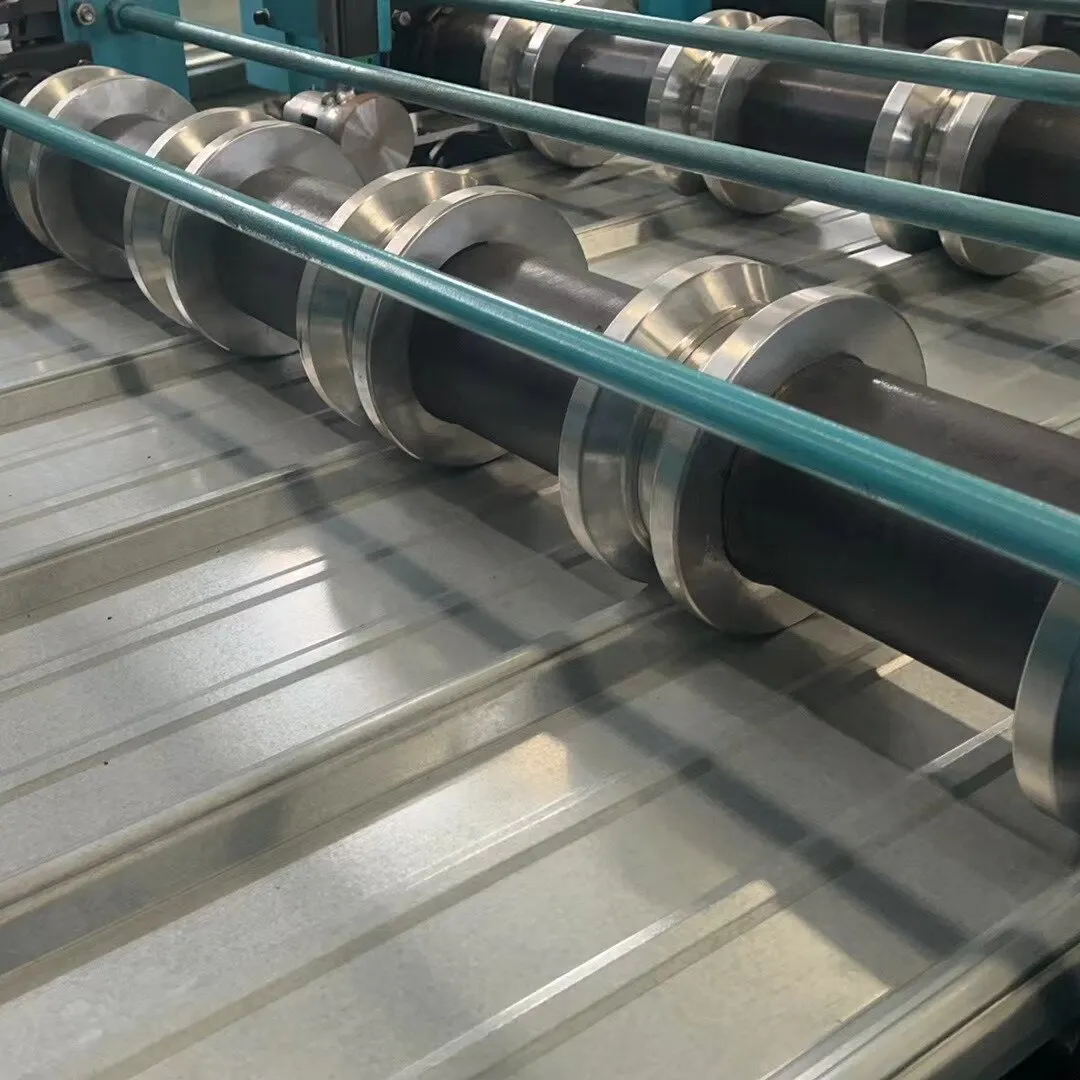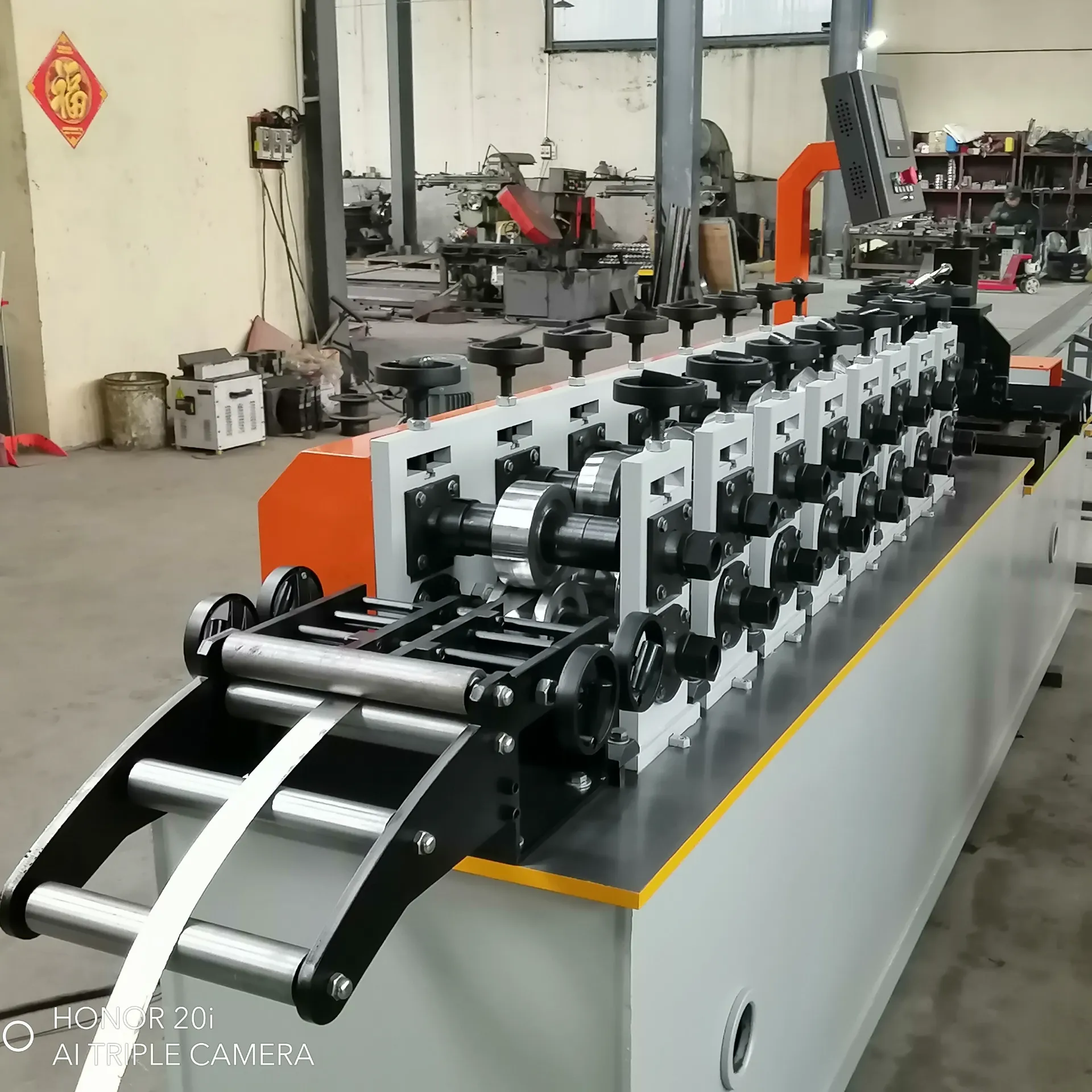High-Efficiency Down Pipe Roll Forming Machine Reliable Down Spout & Pipe Shaping Solutions
- Introduction to Down Pipe Roll Forming Machine: Industry Significance and Market Demand
- Technical Analysis: Structure, Functionality, and Operational Advantages
- Performance and Output Data: Quantitative Insights and Comparative Table
- Comparison Among Leading Manufacturers: Quality, Innovation, and Support
- Customization and Flexible Solutions for Specialized Requirements
- Real-World Applications: Case Studies Across Multiple Industries
- Conclusion: Down Pipe Roll Forming Machine Enhancing Industrial Productivity

(down pipe roll forming machine)
Introduction to Down Pipe Roll Forming Machine: Industry Significance and Market Demand
The down pipe roll forming machine
has profoundly transformed the way construction, infrastructure, and manufacturing industries address water drainage challenges. In the context of global urbanization, efficient rainwater management is critical; research from the International Institute of Building Research indicates that, by 2023, the demand for advanced drainage systems has increased by 34% across developing markets. Manufacturers are consequently prioritizing automation and reliability in equipment such as down spout machines and related forming solutions. These machines streamline the production of pipes and spouts, ensuring consistency, high throughput, and material efficiency. By adopting high-precision technologies, clients benefit from reduced labor costs, improved durability, and faster project turnaround – an essential combination in today's rapid construction cycles.
Technical Analysis: Structure, Functionality, and Operational Advantages
A down pipe roll forming machine is engineered to transform metal coils into finished pipes or downspouts in both round and square profiles with remarkable precision. Its core components typically include an automatic decoiler, leveling station, synchronized feeding system, roll forming stations, high-speed cutters, and programmable controllers. The machine's operational cycle ensures a seamless transition from raw material to finished product.
One defining advantage is minimal material waste: on average, scrap rates are below 2%, compared to traditional fabrication methods, which frequently exceed 7%. The digital servo systems control cutting and shaping with tolerances as tight as ±0.2 mm, meeting or surpassing ISO 9001 standards. Furthermore, integration with PLC and HMI interfaces boosts operational safety and customization, supporting adaptation for both down spout machine workflows and round pipe to square pipe transitions. Thanks to sturdy construction and advanced hydraulics, most modern units ensure continuous operation for over 12 hours daily, supporting high-demand industrial environments.
Performance and Output Data: Quantitative Insights and Comparative Table
Understanding the efficiency of a pipe forming machine requires credible, data-driven assessment. Machines vary in speed, power usage, and finished product quality. The modern down pipe roll forming machines deliver high output, with average production speeds up to 18 meters per minute. Typically, they support pipe thickness ranges from 0.3 mm to 1.2 mm, accommodating various metals, including galvanized steel, stainless steel, and aluminum.
Below is a concise table comparing key technical metrics for different categories:
| Feature | Down Pipe Roll Forming Machine | Down Spout Machine | Round Pipe to Square Pipe Machine |
|---|---|---|---|
| Production Speed (m/min) | 16–18 | 14–16 | 12–15 |
| Supported Thickness (mm) | 0.3–1.2 | 0.4–1.0 | 0.3–1.5 |
| Material Compatibility | Galvanized steel, Aluminum, Stainless steel | Galvanized steel, Copper | Galvanized steel, Stainless steel |
| Precision (mm) | ±0.2 | ±0.3 | ±0.2 |
| Waste Rate | < 2% | < 2.5% | < 2% |
| Control System | PLC + HMI | PLC | PLC + Touch Screen |
| Average Energy Consumption (kW/h) | 7.5 | 6 | 8 |
The above metrics highlight that the typical down pipe roll forming machine delivers slightly higher speeds and compatibility, with a focus on minimal waste and high automation. Such results drive increased operational efficiency and substantial cost savings for large-scale producers.
Comparison Among Leading Manufacturers: Quality, Innovation, and Support
Selecting the right manufacturer for a down spout or roll forming machine is decisive for long-term business success. Market analysis from 2022–2023 shows that over 60% of buyers prioritize after-sales service quality, technical support responsiveness, and proven product reliability. Leading brands allocate up to 12% of their annual budgets to research and development, fostering constant innovation.
For instance, Company A (China) introduced auto-adjustable forming stations for rapid profile changes, reducing setup time by 35%. Company B (Europe) focuses on multilayer safety enclosures and eco-friendly lubrication systems. Meanwhile, Company C (USA) is recognized for robust online diagnostics and modular component upgrades.
In a recent customer satisfaction survey (respondents: 350+), buyers rated Company A highest for cost-effectiveness, Company B for safety, and Company C for technical innovation. The global market remains dynamic; however, the ability to deliver not only precision hardware but also responsive support distinguishes leaders in the down pipe roll forming sector.
Customization and Flexible Solutions for Specialized Requirements
Adaptation is critical in today's competitive manufacturing landscape. Many clients seek tailored solutions to fit specialized project needs, whether adjusting pipe dimensions, introducing new materials, or integrating proprietary branding. Down pipe roll forming machine providers offer wide-ranging customization: from selectable roller sets for different cross-sections to programmable length and perforation settings.
Clients working with galvalume, copper, or rare alloys can source custom roll stations, while servo-driven shearing units permit shape modifications on the fly. Digital control systems allow storage of up to 99 operating programs, ensuring quick changeover for multi-line production workshops. Furthermore, smart maintenance modules monitor wear-and-tear in real time, alerting operators to preventive maintenance tasks and ensuring uninterrupted uptime.
In emerging markets, requests for custom pipe embossment, anti-corrosion coating integration, and unique punch patterns are met with data-driven engineering – delivering distinctive products for both infrastructure and aesthetic projects. These capabilities not only enhance product quality but also unlock new business opportunities for ambitious manufacturers and contractors.
Real-World Applications: Case Studies Across Multiple Industries
Industry adoption of advanced roll forming equipment is not limited to conventional construction sites. For example, a Central European public infrastructure developer reported reducing installation times by 42% when switching from traditional pipe fabrication to automated down spout machines. In Southeast Asia, a large aluminum products manufacturer used customized round pipe to square pipe machines to deliver over 100,000 meters of precision-engineered downspouts to a series of urban renewal projects in 2022.
Another illustrative example comes from the automotive sector, where decorative and protective piping is increasingly shaped using roll forming technology due to its consistency and lower defect rates. Data from a North American factory indicates a 28% reduction in scrap and a 15% boost in daily throughput after deploying an integrated forming line.
Across agricultural applications, specially designed machines serve high-volume greenhouses and storage facilities, delivering watertight, corrosion-resistant pipelines with minimal manual intervention. These multi-sector case studies validate the economic and technical benefits of modern down pipe forming solutions.
Conclusion: Down Pipe Roll Forming Machine Enhancing Industrial Productivity
In summary, the down pipe roll forming machine and its derivatives, including the down spout machine and round pipe to square pipe machine, are driving forward the efficiency, scalability, and quality benchmarks of global pipe production. With advanced technical features, extensive customization possibilities, and clear, data-supported advantages over traditional fabrication methods, these systems cater to industries demanding reliability and rapid fulfillment. Whether serving contractors, infrastructure developers, or specialized manufacturers, investing in a modern roll forming solution translates directly into higher productivity, increased output quality, and stronger market competitiveness.

(down pipe roll forming machine)
